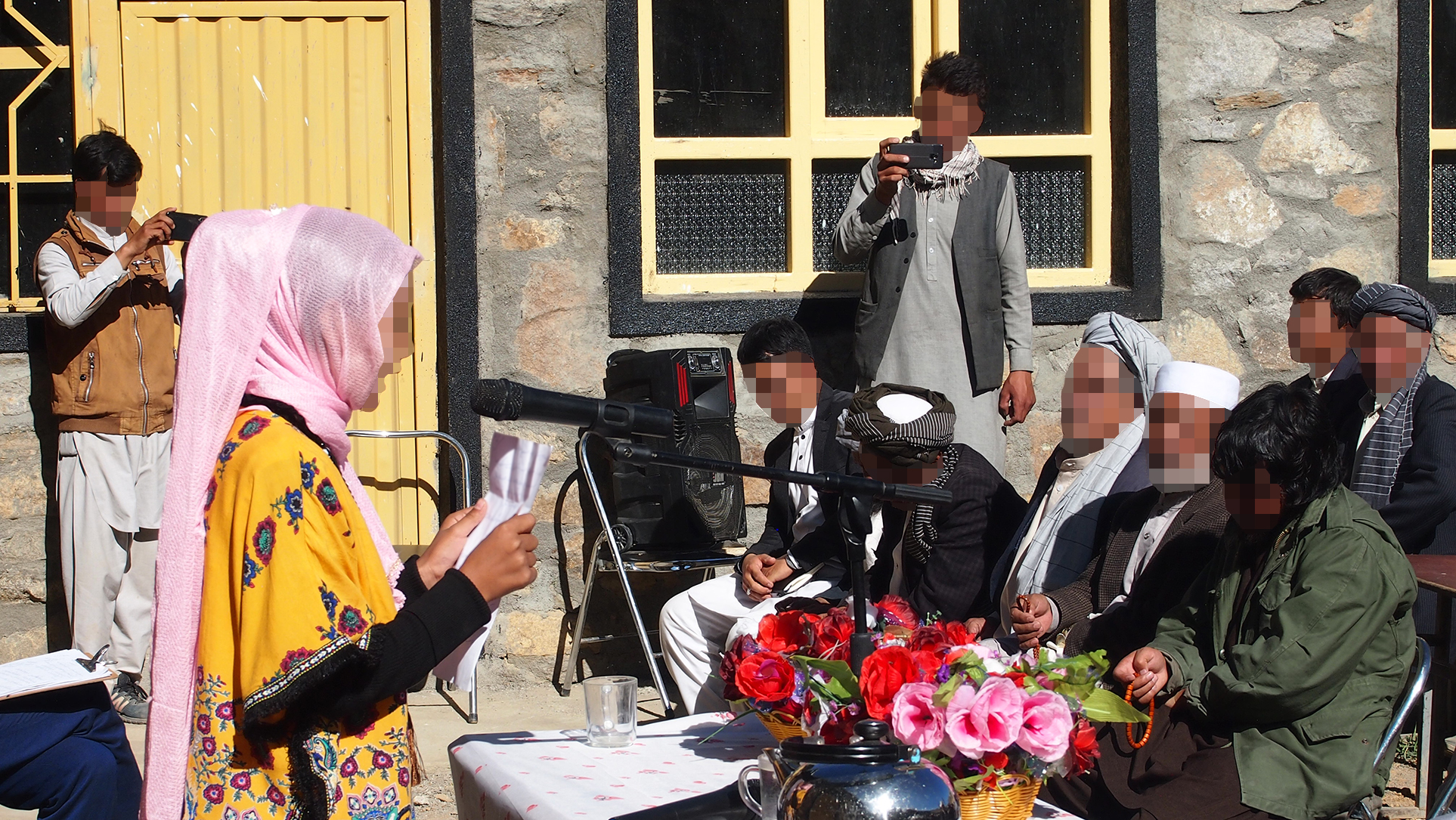
A young female student takes the lead at the opening of a new school building in Ghazni Province, 2020
A spotlight on Afghanistan, June 2022
As we head toward the one-year mark after the fall of the Afghan government, the humanitarian outlook in Afghanistan is sadly worsening. A collapsing economy, drought and conflict have contributed to a situation where over half of Afghanistan’s population faced acute hunger and food insecurity between March and May 2022, according to World Food Program. Tragically, this number is expected to rise even further between June and November. According to a survey by the World Food Program in February, 95% of Afghans face insufficient food consumption, including 100% of female-headed households, and 81% of income-earning households have experienced a significant decrease in income since January 2022. It is hard to gather accurate data in the absence of credible population surveys in Afghanistan, but the reported statistics from UN and other agencies accord with the reports we are receiving from our community partners about the growing humanitarian need, unemployment and forced migration to the neighbouring countries.
The rapid reduction in international financial assistance has caused a major shock in the economy and weakened public institutions. Since the Taliban gained power in August 2021, donor funding for development programs has been withdrawn, which has resulted in health workers not being paid for months and clinics and hospitals running short on critical drugs and supplies. The World Health Organisation warns that more than two-thirds of the population requires health assistance from a health system that is on the verge of collapse.
The head of UN Women Sima Sami Bahous has expressed grave concern for the rights of women and girls in Afghanistan. This extends to girls being shut out of high school education and, more recently, requirements that all women must cover their faces in public and should only leave their homes in cases of necessity. Any deviation from this will result in male relatives being punished. This latest directive is a further escalation of restrictions on women and girls. While women have been at the forefront of sporadic demonstrations on the streets of major city centres such as Kabul in the past nine months, it’s clear that they face an uphill battle in challenging the Taliban without adequate support from the international community and the wider society in Afghanistan.
Since the Taliban took power, we have redoubled our focus on Afghanistan, listening to and being led by our community partners. Over winter in Afghanistan, with many thanks to donors in Australia, we were able to support more than 300 families from our partner communities with direct cash transfers to meet urgent needs, with a particular focus on female-headed households. We also helped our partner communities provide co-education classes for secondary girls and boys in a few of the local mosques. At the time, our partner communities like the majority of the country were hopeful that the Taliban ‘interim government’ would allow girls and women to attend all levels of education. We are now assisting a further 250 teachers across 30 schools so they can provide for their families and resume teaching.
Like the rest of the country, our partner schools have reopened for girls and boys in the primary levels and boys only in the secondary levels since late March this year. Male and female students have also returned to public and private universities. Extreme drought, financial hardship, growing poverty and restrictions on girls and women in education and work have contributed to reduced school and university enrolments across the country. With credit to the communities we support, in our partner schools, both numbers of students and teachers remained comparatively strong, including girls’ attendance in primary schools.
In good news, UNESCO are now providing a basic wage to teachers across schools in Afghanistan who had not been paid since August 2021. In the provinces where we work, this does not extend to all of the teachers and we hope to step up and help fill that education gap.
